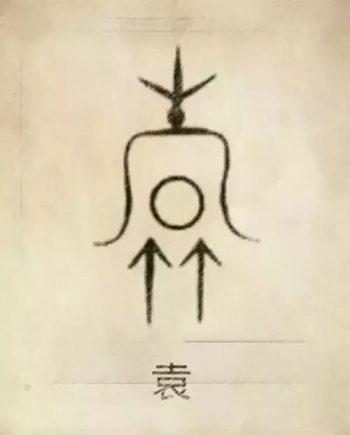The Yuan(yuán) surname is one of China's most ancient family names, tracing its roots back over 3,000 years. With origins tied to legendary emperors and multicultural influences, the Yuan clan offers a unique window into Chinese civilization. Let’s explore its story!

Ⅰ、Origins:The Yuan(yuán) surname is one of the oldest representatives of Chinese surnames, its origin can be traced back to the remote antiquity, and it has characteristics of multiple ethnic groups and multiple sources.
1. The Legacy of Emperor Shun
The primary origin traces back to Emperor Shun. After the Zhou Dynasty (1046–256 BCE) was established, Shun’s descendant Gui Man was granted the state of Chen (modern Henan Province). Centuries later, Gui Man’s 11th-generation grandson Yuan Taotu adopted "Yuan" as the family name, honoring his ancestor’s title. Henan’s Chen County remains the ancestral homeland of the Yuan clan.
2. The Huangdi Connection
A secondary branch originates from Huangdi (Yellow Emperor), a foundational figure in Chinese mythology. His descendants, known for crafting chariot parts, adopted "Yuan" (derived from "chariot shaft") as their surname in northern China.
3. Multicultural Influences
During periods of cultural exchange (e.g., Northern Wei Dynasty to Qing Dynasty), ethnic groups like the Xianbei, Mongols, and Manchu adopted "Yuan" through assimilation, enriching the name’s diversity.
Ⅱ、Notable Figures:
The Yuan family produced luminaries across politics, arts, and science:
1. Eastern Han, Wei, Jin:
Yuan An (Eastern Han statesman): Known for his "integrity in the snow he refused to be recruited by the powerful and initiated the illustrious status of the Yuan family in Runan, which was known as "three dukes in four generations.
Yuan Shao, Yuan Shu: Relying on their family's influence, they carved out their own territories. Yuan Shao commanded the Eastern Coalition to fight against Dong Zhuo, and their rise and fall became a typical example of the politics of the great families.
2. Tang, Song Ming, Qing:
Yuan Tiangang (Tang Dynasty metaphysician): Proficient in physiognomy and astronomy, his 《Pushing the Back》 regarded as a book of prophecies, and the story of him predicting the future for Wu Zetian was widely spread in folk tales.
Yuan Shu (historian): He created the style of chronological narrative, compiled the "Comprehensive Mirror of Historical Events," and innovated the way history was narrated.
Yuan Chonghuan (Late Ming general): He severely wounded Nurhaci in the Battle of Ningyuan, and his tragic ending became a historical focus of the debate loyalty and treachery.
Yuan Mei (Qing Dynasty literary figure): He advocated the "xìng líng shuō" and his 《Sui Garden Poetry Talk》promoted literary reform, and the culture of Random Garden influenced the literati in the south of the Yangtze River.
3. Modern Times
Yuan Longping (1930–2021): The "Father of Hybrid Rice," whose innovation helped alleviate global hunger. His work exemplifies China’s contributions to science.
Ⅲ、Cultural Values:
1. Confucian Traditions:
Yuan families emphasized education and ethics. Texts like Family Teachings of the Yuan Clan promoted values like filial piety and frugality.
2. Migration and distribution:
From Henan, Yuan descendants migrated south during wartime (e.g., Jin Dynasty) and later to Southeast Asia, Europe, and the Americas. Today, overseas Yuan communities thrive in business and cultural exchange.
Ⅳ、Social impact
1. Historical Impact:
The Yuan clan’s political dominance in ancient China shaped governance models and elite culture.
2. Modern Relevance:
From Yuan Longping’s agricultural breakthroughs to diaspora achievements, the name bridges tradition and innovation.
Conclusion:
The Yuan surname is more than a family identifier—it’s a living chronicle of China’s past and present. Whether through ancient scrolls, ancestral temples, or labs improving food security, the Yuan surname story continues to inspire.